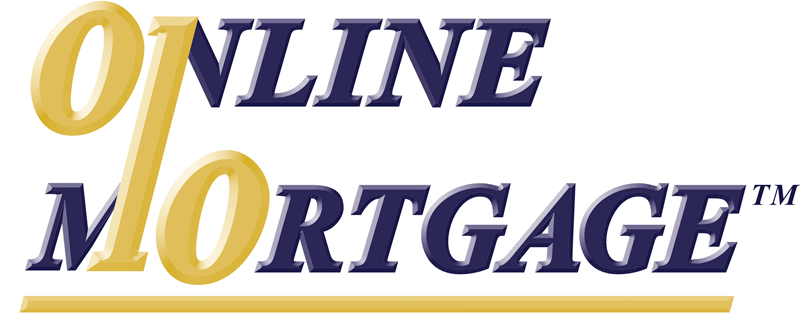TD Canadian Quarterly Economic Forecast: As The World Turns
From TD Economics
Global growth has stood up to trade turmoil better than many feared earlier this year. Even with momentum expected to slow in 2026, it will be to a lesser extent than we expected three months ago.
In contrast, the U.S. economy is forecast to gain a step as Fed rate cuts, the One Big Beautiful Bill Act (OBBBA) and regulatory changes provide a tailwind.
Canada is also an economy of contrasts. Government initiatives to boost investment are likely to meet some resistance with 2026s CUSMA review. The Bank of Canada has done its part, with government spending set to play an increasing role.
As the world turns the page on 2025, key global growth players are on track to meet or exceed our forecasts from earlier this year, despite the disruption from U.S. trade policy. For a variety of reasons tariffs have not proven as punitive compared to the announced tariff rates, and interest rate cuts by global central banks provided a needed tailwind (see report). Looking ahead, the same story will unfold, but a further downshift is likely as most major central banks have reached the end of rate-cutting cycles and must now ensure balanced policy against stable inflation. And while government deficits are expanding in many economies, this is not a universal theme. Some face pressures to consolidate, minimizing the global fiscal impulse next year.
China was among the forecast outperformers, albeit investment is now weakening. This most recent bump in the road will firm the resolve of authorities to prop up the economy through policy support next year. Meanwhile, governments in the eurozone are expected to ramp up spending, particularly on defense. However, it will take time for major countries to follow through on their announcements, with that fiscal impulse becoming more evident in the second half of 2026.
https://economics.td.com/ca-quarterly-economic-forecast
Bank of Canada maintains policy rate at 2¼%
The Bank of Canada today held its target for the overnight rate at 2.25%, with the Bank Rate at 2.5% and the deposit rate at 2.20%.
Major economies around the world continue to show resilience to US trade protectionism, but uncertainty is still high. In the United States, economic growth is being supported by strong consumption and a surge in AI investment. The US government shutdown caused volatility in quarterly growth and delayed the release of some key economic data. Tariffs are causing some upward pressure on US inflation. In the euro area, economic growth has been stronger than expected, with the services sector showing particular resilience. In China, soft domestic demand, including more weakness in the housing market, is weighing on growth. Global financial conditions, oil prices, and the Canadian dollar are all roughly unchanged since the Banks October Monetary Policy Report (MPR).
Canadas economy grew by a surprisingly strong 2.6% in the third quarter, even as final domestic demand was flat. The increase in GDP largely reflected volatility in trade. The Bank expects final domestic demand will grow in the fourth quarter, but with an anticipated decline in net exports, GDP will likely be weak. Growth is forecast to pick up in 2026, although uncertainty remains high and large swings in trade may continue to cause quarterly volatility.
Canadas labour market is showing some signs of improvement. Employment has shown solid gains in the past three months and the unemployment rate declined to 6.5% in November. Nevertheless, job markets in trade-sensitive sectors remain weak and economy-wide hiring intentions continue to be subdued.
CPI inflation slowed to 2.2% in October, as gasoline prices fell and food prices rose more slowly. CPI inflation has been close to the 2% target for more than a year, while measures of core inflation remain in the range of 2% to 3%. The Bank assesses that underlying inflation is still around 2%. In the near term, CPI inflation is likely to be higher due to the effects of last years GST/HST holiday on the prices of some goods and services. Looking through this choppiness, the Bank expects ongoing economic slack to roughly offset cost pressures associated with the reconfiguration of trade, keeping CPI inflation close to the 2% target.
https://www.bankofcanada.ca/2025/12/fad-press-release-2025-12-10/
CMHC: Framework for change: Productivity in housing construction
From CMHC
Housing affordability is challenging Canadians. To address this, CMHC has shown that we need to double housing starts over the next decade. Meeting this goal will require building smarter and faster, with governments and business working together. While governments can improve regulations, the residential construction industry will need to invest to improve its productivity. What are the current productivity challenges in building housing in Canada, and what solutions show the most promise?
Productivity measures how much output, such as housing, is produced for each hour of work. Increasing productivity isnt about working more hoursits about working smarter. This means investing in the latest tools and equipment, ensuring workers have top-notch skills. It also involves using innovative and effective management techniques and reorganizing businesses to take advantage of these improvements.
The productivity performance of the residential construction industry has been much weaker since the pandemic, contributing to the loss of housing affordability. The Centre for the Study of Living Standards estimates that lost productivity from 2019 to 2024 added $6 to $8 billion to housing construction costs in Canada. This accounts for up to 20% of the increase in new home prices. Boosting productivity in residential construction would also strengthen Canadas overall economic performance. In 2024, residential construction accounted for 4.2% of business-sector employment but only 3.3% of business-sector value added.
https://www.cmhc-schl.gc.ca/observer/2025/framework-for-change-productivity-in-housing-construction






























